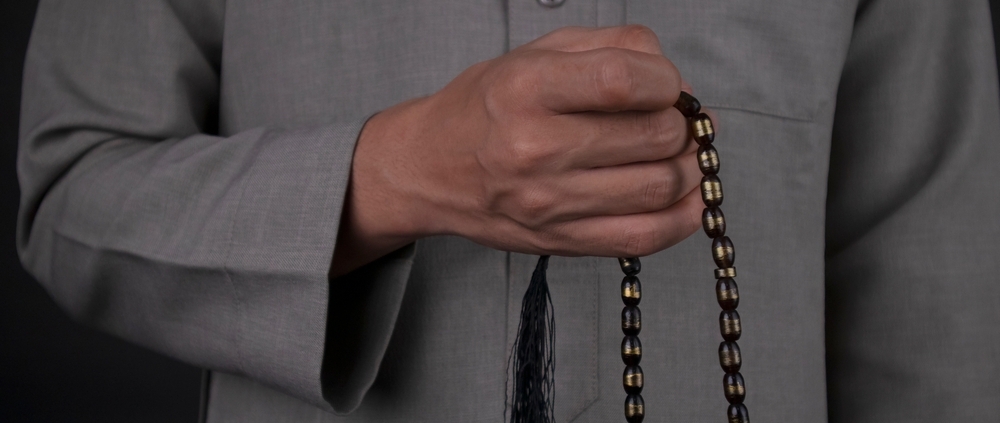How Can Good Deeds Become Dust on the Day of Judgement?
Answered by Mawlana Ilyas Patel
Question
I asked you about the hadith about deeds becoming dust on the Day of Judgment. You didn’t say whether or not my good deeds will disappear if I do deeds out of ostentation. I asked another Islamic website, and to sum it up, they said, “What the hadith means is that those people are not rewarded for what they do before the people because they did not do it for the pleasure of Allah, rather, they were showing off.”
It becomes clear that the issue is about not being rewarded for deeds that are devoid of sincerity, not an issue of deeds being wiped away. Do you have the same opinion as this website? Here is a part of it “I certainly know people of my nation who will come on the Day of Judgement with good deeds like the mountains of Tihama”
Answer
In the Name of Allah, the Most Merciful and Compassionate
I pray you are in good faith and health. Thank you for your question.
Allah Scatters the Good Deeds of Transgressors
Thawban (Allah be pleased with him) reported that the Prophet (Allah bless him and give him peace) said, said, “I certainly know people from my nation who will come on the Day of Resurrection with good deeds like the mountains of Tihama, but Allah will scatter them like dust.” Thawban said, “O Messenger of Allah, describe them to us and tell us more, that we will not become like them.” The Prophet said, “They are your brothers and from your ethnicity, taking up worship at night as you do, but they will be people who transgress the sacred limits of Allah when they are alone.” [Ibn Maja]
The Prophet (Allah bless him and give him peace) explains in the very same hadith why the good deeds and works will disappear, describing those people that they are the same people from your ethnicity who will be praying, fasting, and worshipping at night however, they will transgress and sin when they are alone.
Some scholars have said it also applies to people who do good deeds showing off and in ostentation, too, without knowing they are doing it for others.
[Ibn Rajab, Al-Mahajja Fi Sayr al-Dulja]
We pray to Allah Most High to protect us from outward and inward sins, occupy us in His constant remembrance and deep fear while with others and in seclusion and privacy, Amin.
I would like you to go through the valuable answers and links below. You will receive guidance and direction in sha Allah.
Related Answers
- Purification of the Heart for Youth: Diseases of the Heart and Their Cure – YouTube
- The Path of Muhammad: Birgivi’s Manual of Taqwa Explained – YouTube
- Purification of the Heart: Signs, Symptoms, and Cures of the Spiritual Diseases of the Heart: Hamza Yusuf
- Prayer of Repentance: Salat al-Tawba – SeekersGuidance
Wassalam,
[Mawlana] Ilyas Patel
Checked and Approved by Shaykh Faraz Rabbani
وفي «سنن ابن ماجه» (١) من رواية ثوبان مرفوعًا: «إنَّ مِنْ أمتي من يجيء بأعمال أمثال الجبال فيجعلها الله هباءً منثورًا».
وفيه: «هم قومٌ من جلدتكم (ويتكلمون بألسنتكم) (٢) ويأخذون من الليل كما تأخذون ولكنهم إذا خلوا بمحارم الله انتهكوها».
وخرَّج يعقوب بن شيبة وابن أبي الدُّنْيَا من حديث سالم مولى أبي حذيفة مرفوعًا: «لَيجيء يوم القيامة أقوامٌ معهم من الحسنات مثل جبال تِهامَةَ، حتى إذا جيء بهم جعل الله أعمالهم هباءً ثم أكبَّهم في النار».
قَالَ سالم: خشيت أن أكون منهم.
قَالَ: «أما إنَّهم كانوا يصومون ويصلون ويأخذون هنيهة من الليل، لعلهم كانوا إذا عرض لهم شيء من الحرام أخذوه، فأدحض الله أعمالهم» (٣).
وقد يحبط العمل بآفة من رياء خفيٍّ وعُجْب به ونحو ذلك ولا يشعر به صاحبه
(١) برقم (٤٢٤٥) قَالَ في الزوائد هذا إسناد صحيح، رجاله ثقات، وأبو عامر الألهاني اسمه عبد الله بن غابر.
(٢) ليست هذه العبارة في ابن ماجه.
(٣) وأخرجه أبو نعيم في «الحلية» (١/ ١٧٨).
Mawlana Ilyas Patel is a traditionally-trained scholar who has studied in the UK, India, Pakistan, Syria, Jordan, and Turkey. He started his early education in the UK. He went on to complete the hifz of the Quran in India, then enrolled in an Islamic seminary in the UK, where he studied the secular and ‘Aalimiyya sciences. He then traveled to Karachi, Pakistan. He has been an Imam in Rep of Ireland for several years. He has taught hifz of the Quran, Tajwid, Fiqh, and many other Islamic sciences to children and adults onsite and online extensively in the UK and Ireland. He taught at a local Islamic seminary for 12 years in the UK, where he was a librarian and a teacher of Islamic sciences. He currently resides in the UK with his wife. His interest is a love of books and gardening.
